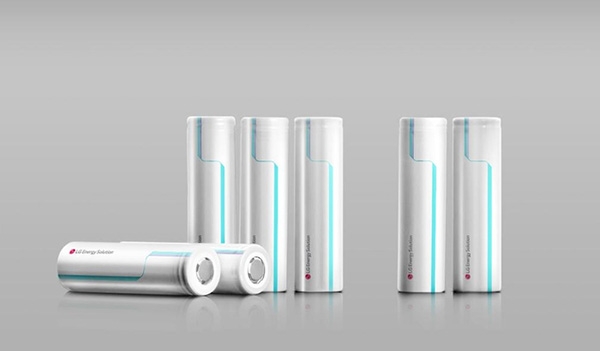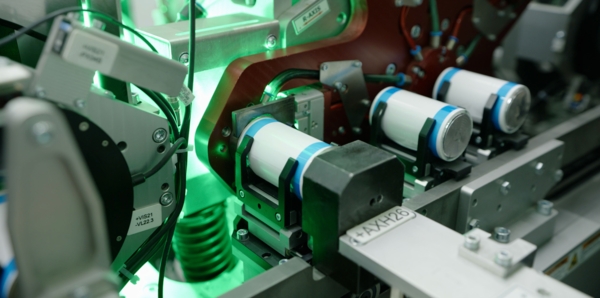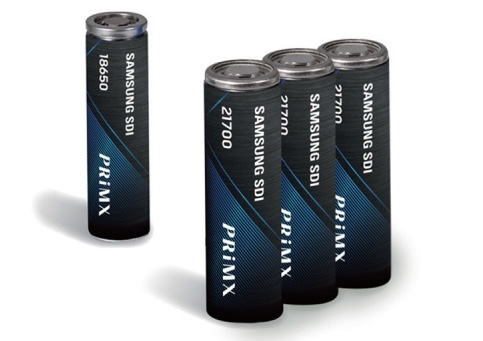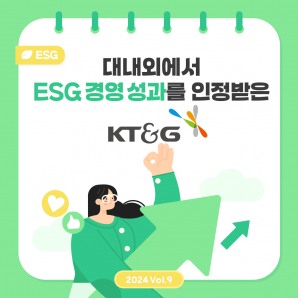Two of South Korea's leading battery companies, LG Energy Solution and Samsung SDI, are focusing on next-generation cylindrical batteries.

LG Energy Solutions cylindrical battery (Photo: LG Energy Solutions)
The 4680 battery is a battery specification unveiled by Tesla in 2020. At the time, Tesla announced that it would have five times the energy capacity and 16% more range than the existing 2170 (21mm diameter, 70mm height) battery. Tesla has been producing the 4680 battery in-house since 2023, but due to yield issues, it has only been applied to a few Model Ys for U.S. sales.

4680 battery cells being produced at Gigafactory Texas in Texas, USA (Photo: Tesla website)
If LG Energy Solution succeeds in mass-producing the new batteries first, it will be able to expand its influence on Tesla.
For this reason, LG Energy Solution is pushing to keep its investment in cylindrical batteries on target, even as it continues to streamline its financial structure.
In January, the company announced that it would invest KRW 10 trillion in capex this year, but in April, it announced a reduction in capex, saying that "market conditions have changed." Then, last month, it paused construction of an energy storage (ESS) LFP (lithium iron phosphate) battery production plant in Arizona, USA. However, it said that the Arizona cylindrical battery plant project it is building together will proceed as planned.
This year, LG Energy Solutions has been facing difficulties, with its real operating profit, excluding the U.S. IRA (Inflation Reduction Act) subsidy, turning into a loss, but the company believes that timely supply of cylindrical batteries is more important for the upcoming rebound in the electric vehicle market.
Kim Dongmyung President and CEO of LG Energy Solutions, said in a recent email to employees that "now is the time to adjust the pace of investment," but emphasized that "it is important to secure the agility to make the right investments at the right time."

Samsung SDI's cylindrical battery (Photo: Samsung SDI)
Samsung SDI has also completed development of a new cylindrical battery for electric vehicles. "The 46-pi Cylindrical Batteries can be fully mass-produced early next year," Choi Yoonho, CEO of Samsung SDI, said at Interbattery in May.
The 46-pi refers to a new cylindrical battery with a diameter of 46 millimeters. In the first quarter of this year, Samsung SDI mass-produced prototypes from a 46-pi battery pilot line at its Cheonan plant and sent them to automotive customers for testing.
Samsung SDI's cylindrical battery is expected to be adopted by German automaker BMW. Last year, BMW announced that its new electric vehicle lineup, the "Neue Klasse" (New Class), which will be introduced in 2025, will be equipped with cylindrical batteries with a diameter of 46mm and different heights. In April of this year, European media reported that Samsung SDI has received permission from the local government to build a new battery line in Göd, Hungary.
General Motors is also pursuing a cylindrical battery alliance with Samsung SDI. In June last year, the two companies agreed to establish a battery joint venture in Indiana, USA. The goal is to produce 30Gwh of prismatic and cylindrical batteries annually from 2026, with a total investment of $3 billion (KRW 4 trillion), to supply GM's electric vehicles.
Until now, Samsung SDI has maintained a conservative investment stance when it comes to expanding battery production capacity. However, it is aggressively expanding its investment as the industry is being restructured due to shrinking demand. Samsung SDI is the only one of the three domestic battery makers to increase its capex this year.
LG Energy Solutions and Samsung SDI are expanding their investment in cylindrical batteries because of the demand from their automotive customers. Their main form factors are pouch and prismatic, respectively.
Cylindrical batteries are shaped like regular batteries. They have been standardized for a long time, so they have the advantage of low manufacturing technology difficulty and low manufacturing cost. However, they are vulnerable to safety and have a low energy density per volume. While traditional automakers that emphasize safety prefer pouch or square-shaped batteries, startups such as Tesla and Livian choose cylindrical batteries.
"Cylindrical batteries are in line with the needs of automakers who want to lower the ex-factory price to overcome the electric vehicle chasm," said Lee Changmin, a researcher at KB Securities.
Gwak Horyung (horr@fntimes.com)




























![[DQN] "지자체 금고 잡아라"…출연금 신한 1위·금고 규모 농협 압도적](https://cfnimage.commutil.kr/phpwas/restmb_setimgmake.php?pp=006&w=69&h=45&m=5&simg=2024112102061902156f09e13944d391241172.jpg&nmt=18)
![[DQN] ‘잠잠할 날 없는 금융사고?’ 3년간 6천억대...BNK금융, 사고금액 최대](https://cfnimage.commutil.kr/phpwas/restmb_setimgmake.php?pp=006&w=69&h=45&m=5&simg=2024112021030009519237391cf861151384944.jpg&nmt=18)

![[DCM] KT, 2000억 회사채 발행... 장기 자금조달로 재무 안정성 확보](https://cfnimage.commutil.kr/phpwas/restmb_setimgmake.php?pp=006&w=69&h=45&m=5&simg=2024112113555900183141825007d12411124362.jpg&nmt=18)





![가상자산 과세 여-야 대립각…'유예 VS 시행' 줄다리기 [22대 국회]](https://cfnimage.commutil.kr/phpwas/restmb_setimgmake.php?pp=006&w=69&h=45&m=5&simg=2021111120211305168179ad43907611057578.jpg&nmt=18)














![[카드뉴스] 국립생태원과 함께 환경보호 활동 강화하는 KT&G](https://cfnimage.commutil.kr/phpwas/restmb_setimgmake.php?pp=006&w=298&h=298&m=1&simg=202403221529138957c1c16452b0175114235199_0.png&nmt=18)
![[카드뉴스] 신생아 특례 대출 조건, 한도, 금리, 신청방법 등 총정리...연 1%대, 최대 5억](https://cfnimage.commutil.kr/phpwas/restmb_setimgmake.php?pp=006&w=298&h=298&m=1&simg=20240131105228940de68fcbb35175114235199_0.jpg&nmt=18)
![[카드뉴스] 어닝시즌은 ‘실적발표기간’으로](https://cfnimage.commutil.kr/phpwas/restmb_setimgmake.php?pp=006&w=298&h=298&m=1&simg=202311301105084674de68fcbb35175114235199_0.png&nmt=18)
![[신간] 사모펀드 투자와 경영의 비밀](https://cfnimage.commutil.kr/phpwas/restmb_setimgmake.php?pp=006&w=81&h=123&m=5&simg=2024102809331308730f8caa4a5ce175114235199.jpg&nmt=18)
![[신간]퍼스널브랜딩, 문학에서 길을 찾다](https://cfnimage.commutil.kr/phpwas/restmb_setimgmake.php?pp=006&w=81&h=123&m=5&simg=2024102214123606876f8caa4a5ce175114235199.jpg&nmt=18)
![[서평] 추세 매매의 대가들...추세추종 투자전략의 대가 14인 인터뷰](https://cfnimage.commutil.kr/phpwas/restmb_setimgmake.php?pp=006&w=81&h=123&m=5&simg=2023102410444004986c1c16452b0175114235199.jpg&nmt=18)

![[신간] 김국주 전 제주은행장, ‘나는 시간을 그린다 1·2’ 에세이 출간](https://cfnimage.commutil.kr/phpwas/restmb_setimgmake.php?pp=006&w=81&h=123&m=5&simg=2024111517430908074c1c16452b012411124362.jpg&nmt=18)








